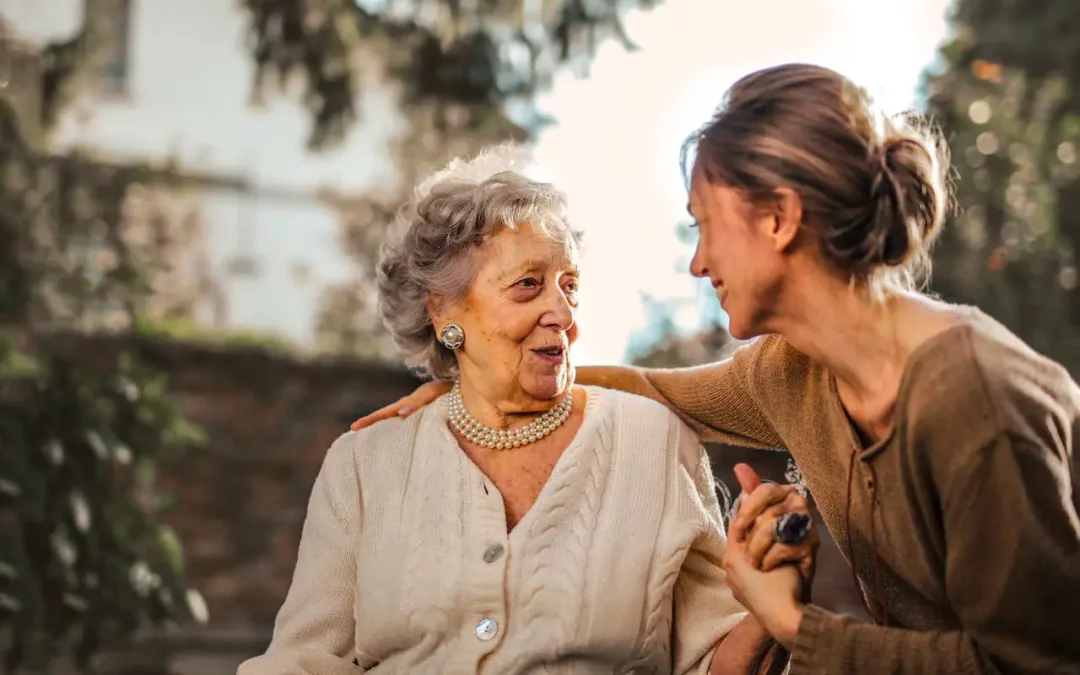Aging is a natural process that we all go through, and while it’s an amazing journey, it often brings challenges like decreased organ function and increased pain. Fortunately, massage therapy offers a wonderful way to alleviate these issues. In this blog, we’ll explore the top 7 health benefits of massage therapy for seniors.
1. Improved Circulation
As we age, our bodies naturally experience a decline in various functions, including blood circulation. However, maintaining good blood circulation remains crucial for overall health, as it supports essential bodily processes such as respiration and digestion.
Therefore, a massage can be particularly beneficial for older individuals, as it can help improve blood circulation and promote overall well-being.
Furthermore, massage techniques like kneading, gentle long strokes and rhythmic tapping effectively enhance blood circulation. This ensures that oxygen and nutrients are delivered properly to the intended areas of the body. Additionally, it aids in eliminating waste products, thereby preventing the accumulation of toxins and fluids.
Moreover, improved blood circulation offers various advantages, such as enhancing immune function and promoting faster healing and recovery. Given that seniors are more susceptible to health issues and diseases, enhanced blood circulation can contribute to their overall well-being by facilitating quicker recovery and healing processes.
2. Pain Relief
Pain is more common in older adults and seniors. Activities such as lifting weights, engaging in rigorous activities, or even simple actions like walking, sitting, and standing for extended periods can become painful. Simple exercises, stretching, and relaxing massages are great ways to alleviate pain and improve muscle health.
Indeed, massages are designed to release tense and stiff muscles, thereby alleviating much of the pain in the body. Stretching, in the muscle sessions helps to lengthen the muscle tissues, thereby increasing the flexibility of the tissues.
Seniors often suffer from conditions like osteoarthritis or rheumatoid arthritis, which cause pain and limited mobility. Massage therapy can target the joints to improve flexibility by stimulating the production of synovial fluid. This fluid acts as a lubricant between the joints, reducing friction and enhancing mobility.
SEE MORE- 7 Proven Massages to Ease Back Pain
3. Enhanced Flexibility and Range of Motion
Limited flexibility is a common issue among older adults. As we age, our bodies naturally lose muscle mass and strength. Additionally, joint health may worsen and develop arthritis, further restricting flexibility and mobility.
To address these issues, relaxation methods such as massages are crucial for older individuals to regain flexibility and mobility in muscles and joints. Massage techniques like long strokes, kneading, and tapping help loosen tight muscles and reduce joint stiffness.
Moreover, therapists employ trigger point therapy to carefully break down adhesions and knots in muscles, promoting normal muscle function. Stretching techniques are also incorporated to lengthen muscle tissues, preventing strain and increasing flexibility. These combined approaches help older adults maintain or improve their flexibility and mobility, enhancing overall quality of life.
4. Reduced Symptoms of Depression and Anxiety
Many senior individuals may appear healthy on the outside, but mental health issues such as depression and anxiety are common among this age group. While massage therapy cannot entirely prevent these mental health conditions, it can significantly reduce their symptoms.
During a massage therapy session, techniques such as long strokes, kneading, and other methods can induce the release of endorphins, or “feel-good” hormones. These hormones naturally uplift mood and help reduce mood swings.
Additionally, the increase in dopamine and serotonin levels helps alleviate feelings of depression and promotes a sense of happiness. The relaxation provided by the massage session also contributes to improved sleep patterns, leading to deeper and more restful sleep. Adequate sleep is crucial in reducing the symptoms of depression and enhancing overall mental health.
SEE MORE – 10 relaxing massages to combat anxiety
5. Boosted Immune Function
Massages can boost immune function in people of all age groups. People who do exercises or get massages and stretches consistently have been shown to have improved immunity functions more than others.
Enhanced blood circulation is one way that facilitates immune function. Blood circulation facilitates the movement of white blood cells and other antibodies, which are essential for fighting pathogens entering the body. This improved circulation ensures that these immune cells are efficiently distributed throughout the body, strengthening the overall immune response and helping to prevent illness.
In addition to that, massage can also stimulate lymphatic drainage, a crucial part of the immune system. The lymphatic system produces lymphocytes, a type of white blood cell, which helps fight pathogens and other
6. Better Sleep Quality
Massage has relaxing effects on the body, which can improve sleep quality. Quality sleep is essential for maintaining proper body and mind functions. However, many older adults struggle to get quality or deep sleep for various reasons.
Massage is one of the best ways for older individuals to achieve better sleep. The relaxation provided during a massage session alleviates soreness and stiffness in muscles, reducing pain and making it easier to fall asleep.
Additionally, massages decrease cortisol levels, reducing stress. The increased production of dopamine and serotonin helps improve mood and promotes a relaxed, peaceful state, facilitating quicker and deeper sleep.
7. Improved Digestion
Anxiety and stress can disrupt the normal functioning of the digestive system. Older individuals are more prone to digestive issues due to decreased organ function and other age-related factors. Therefore, maintaining proper digestive system function is crucial, and massage can significantly contribute to this.
Improved blood circulation through massage therapy helps maintain optimal digestion and overall organ performance. Additionally, massage stimulates the parasympathetic nervous system, which is responsible for the body’s rest and digestion response. This helps in enhancing digestive efficiency.
High stress and anxiety can lead to conditions like irritable bowel syndrome (IBS), which can cause discomfort and pain in the stomach and gut. Massage helps to relax the body, reducing stress levels and alleviating anxiety symptoms, thus supporting better digestive health.

